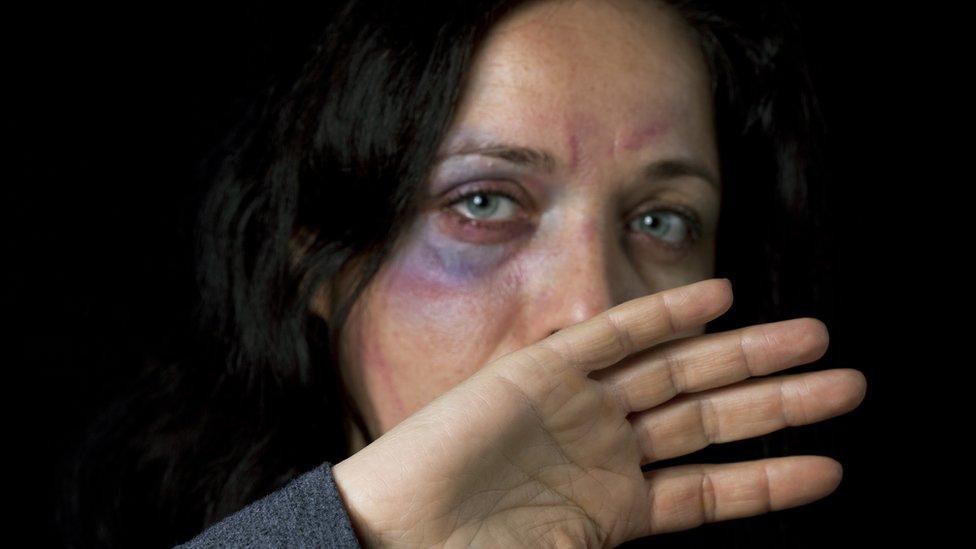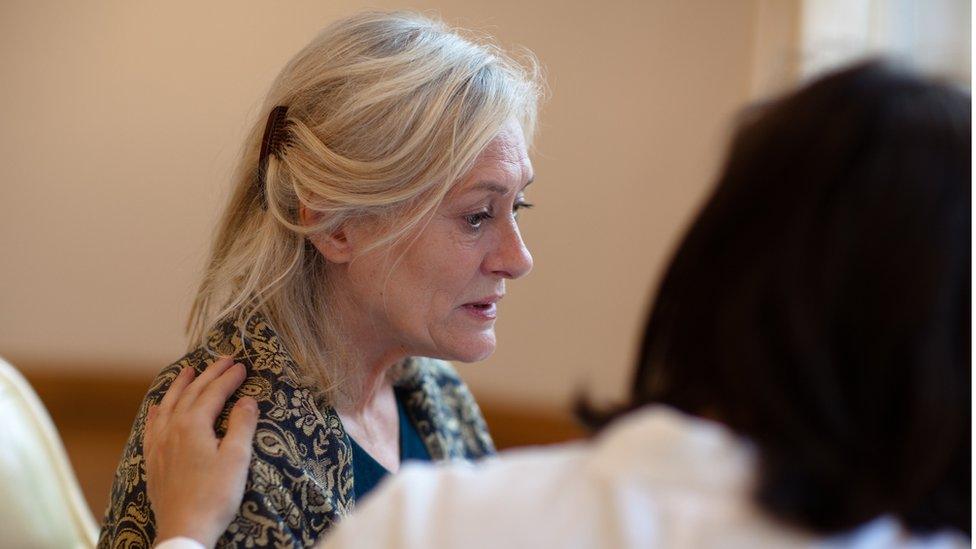Study into brain health after domestic violence
- Published

The study will look at how domestic violence affects brain health (picture posed by model)
A new study will look at the effects of domestic violence on brain health.
A Scottish scientist behind important research into football and dementia is to lead an investigation into the lifelong consequences of physical abuse on the brain.
Researchers at Glasgow and Edinburgh universities have been funded by The Drake Foundation to conduct the study.
The organisation previously financed studies into sports-related head injuries.
The Drake IPV Study will be overseen by Prof Willie Stewart, who leads multiple collaborative research programmes exploring outcomes from traumatic brain injury.
In 2019, Prof Stewart published research which found that former professional footballers were three and a half times more likely to die of dementia than people of the same age range in the general population.
His latest research will examine individuals exposed to domestic abuse, many of whom currently report a history of traumatic brain injury.
Lifelong outcomes
The study recognises a growing awareness of the association between brain injury and increased risk of neurodegenerative disease, including dementia.
Prof Stewart, consultant neuropathologist and honorary professor at the University of Glasgow, said: "There is a need for robust investigations to better understand brain health outcomes following domestic abuse.
"Traumatic brain injury is one important risk factor contributing to risk of dementia, but there has been remarkably little research looking at the potential lifelong outcomes of trauma from intimate partner violence."

Prof Willie Stewart has completed work on dementia in football
Global estimates suggest that about 30% of women over the age of 15 have been exposed to physical or sexual intimate partner violence (IPV). The new study addresses a lack of research into, in particular, the long-term consequences.
Last month, a study from the University of Glasgow's Prof Tom McMillan found that 78% of women prisoners in Scotland had a history of significant head injury - mostly through domestic abuse.
Prof McMillan's research found that 66% of inmates had suffered repeat head injuries for many years.
And 89% of participants said domestic violence was the most common cause.
The study, funded by the Scottish government and published in the Lancet Psychiatry, found the majority of victims were from deprived areas.
Risk factors
The Drake IPV Study will have access to datasets from the internationally-regarded Prevent Dementia Programme led by Prof Craig Ritchie from the University of Edinburgh.
Prof Ritchie said: "The programme always sought to understand the contribution of all risk factors for later life dementia and while it is now well known that head injury affects the risk of dementia, we also need to understand the source of that head injury to be able to work effectively to prevent and manage this effectively.
"This funding is so critical in bringing intimate partner violence out of the shadows in terms of dementia risk."

The study aims to examine how partner violence affects the risk of conditions such as dementia
The researchers will look for any neuroimaging changes in the brains of individuals with a history of domestic abuse, as well as any changes that correlate with measures of exposure to traumatic brain injury, and compare these to population controls with no reported history of abuse.
Lauren Pulling, Drake Foundation's chief executive, said: "The Drake Foundation is proud to be funding this new study into this largely under-researched area.
"This is a critical area of research. We hope that the Drake IPV Study will not only advance our knowledge of brain health in both IPV survivors and the general population, but also help to reduce the stigma around domestic abuse by bringing it into the open."
Related topics
- Attribution
- Published18 November 2020

- Attribution
- Published4 November 2020
